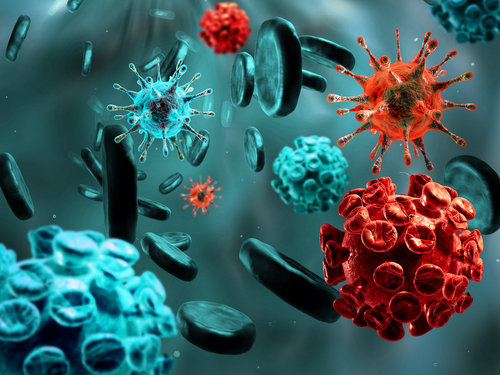Novel HD Study Zooms in on Peripheral Immune Dysfunction
Written by |

A new study entitled “Mutant Huntingtin Does Not Affect the Intrinsic Phenotype of Human Huntington’s Disease T Lymphocytes,” published in PLOS ONE, has revealed important insights into future Huntington’s disease therapies aimed at modulating the peripheral immune system, mainly by targeting hyper-reactive monocytes and macrophages.
Huntington’s disease (HD) is a deadly neurodegenerative condition caused by a CAG repeat expansion in the huntingtin gene (HTT), responsible for the production of a mutant protein. Research has shown that the peripheral innate immune system is dysregulated in Huntington’s disease and may be involved in its pathogenesis, with the activation of microglia in the CNS and increased systemic levels of pro-inflammatory cytokines and chemokines detected several years before disease onset. In animal models of the disease, treatment with immunomodulatory drugs has been shown to improve the outcome of HD. Moreover, recent work attempting to identify the causes of these dysfunctions has focused on the cells of the innate immune system, however, very little is known about the adaptive immune system in HD, where T lymphocytes are major players.
The research team responsible for this study had previously shown that mutant HTT (mHTT) was expressed in T lymphocytes and that levels of the protein were associated with disease load. Now, the team investigated immune human cells collected ex vivo from HD patients, in particular CD4+ helper T lymphocytes, one of the principal effector cells of the adaptive immune system. The results revealed that the intrinsic phenotype of helper T lymphocytes was not extensively affected by the presence of mHTT. Importantly, this finding supports previous work by the same team that proposed hyper-reactive monocytes and macrophages (i.e., innate immune cells) are the most probable cause of peripheral immune dysfunction in HD. Furthermore, these data show the value of a systematic approach to investigating the function of different cell types in HD, as the phenotypic effects of mHTT are dependent on the cellular microenvironment and the relative pathways it interacts with.
The authors highlight that their results advance the “understanding of HD as a disease of the whole body, and supports our previous work suggesting that hyper-reactive monocytes and macrophages are the most likely source of peripheral immune dysfunction in HD. This has important implications for future novel therapies aimed at modulating the peripheral immune system, as it shows that only targeting certain cell types is likely to be beneficial.”


